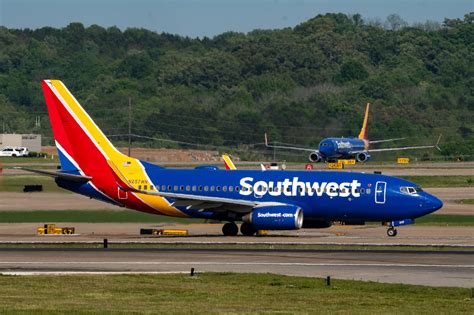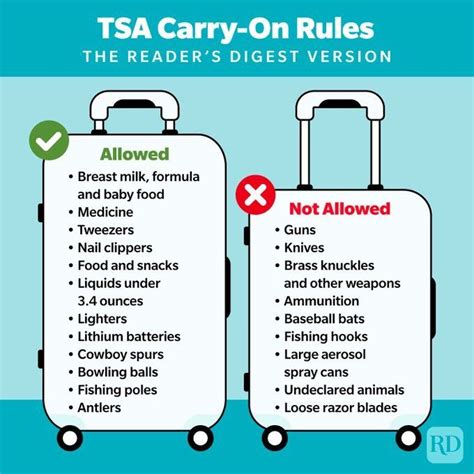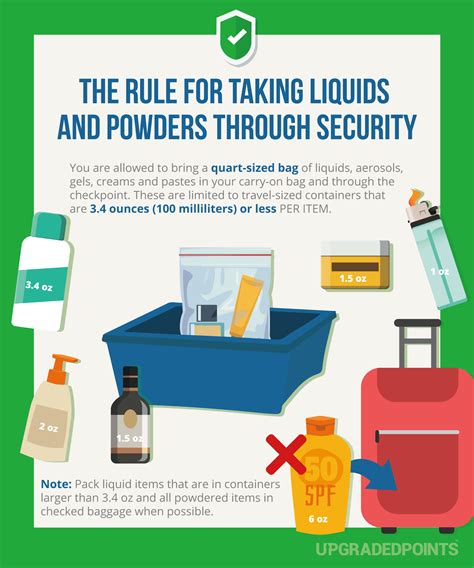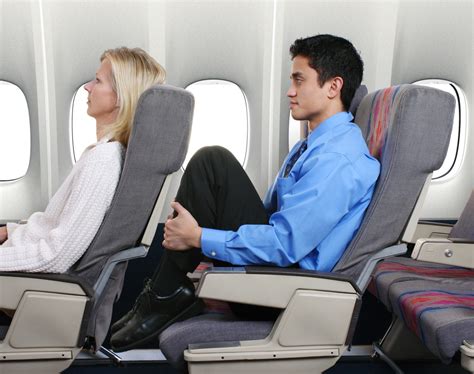
Southwest Airlines’ updated boarding procedures, prioritizing passengers who pay extra for “EarlyBird Check-In,” are drawing considerable criticism from travelers who feel the new system disadvantages those who don’t pay a premium. The changes, which essentially give a select group priority boarding even over those who check in precisely 24 hours before their flight, have sparked outrage and accusations of unfair practices.
Southwest Airlines, known for its unique open seating policy, is facing a barrage of criticism after tweaking its boarding procedures. The new system, while seemingly subtle, significantly alters the boarding dynamics, impacting passengers who don’t opt for the airline’s “EarlyBird Check-In” service. Passengers who have traditionally relied on setting alarms and checking in promptly at the 24-hour mark are finding themselves pushed further back in the boarding queue, leading to frustration and claims of a bait-and-switch tactic. The move has ignited a debate about fairness, transparency, and the increasing trend of airlines unbundling services and charging extra for perks that were once standard.
The crux of the issue lies in how Southwest assigns boarding positions. Unlike most airlines that assign specific seats, Southwest operates on a boarding group system (A, B, and C), each further divided into numbered positions. The earlier one checks in, the lower the number assigned, and the sooner one boards the aircraft. This system has always incentivized early check-in, rewarding proactive travelers with better seat choices. However, the new changes introduce a layer of complexity that disadvantages those who, while still checking in promptly, find themselves behind a cohort of “EarlyBird” customers.
“EarlyBird Check-In” is a paid service that automatically checks passengers in 36 hours before the flight, guaranteeing them an earlier boarding position. While the service isn’t new, its impact on the overall boarding process appears to have increased, leaving many regular Southwest flyers feeling shortchanged. Passengers argue that by prioritizing “EarlyBird” customers even over those who check in exactly 24 hours prior to departure, Southwest is essentially selling a privilege that undermines the core principle of its boarding system, which was previously based on the simple principle of first come, first served (within the 24-hour check-in window).
The controversy is further fueled by a perceived lack of transparency. Many passengers claim they were unaware of the changes and only discovered the shift when they found themselves unexpectedly further back in the boarding line. Social media platforms are awash with complaints, with travelers expressing their disappointment and accusing Southwest of prioritizing revenue generation over customer satisfaction. The airline’s official response has been to emphasize the benefits of “EarlyBird Check-In” and to highlight that passengers still have the option to check in for free within the 24-hour window. However, this response has done little to quell the growing discontent.
The timing of these changes is also under scrutiny. Southwest Airlines has faced operational challenges in recent years, including a significant meltdown during the holiday season of 2022. As the airline attempts to rebuild its reputation and regain customer trust, the implementation of these boarding changes has been viewed by some as a misstep, potentially alienating loyal customers and further damaging the brand image. Critics argue that Southwest should be focusing on improving operational reliability and customer service rather than introducing changes that appear to prioritize revenue maximization at the expense of customer experience.
The “Southwest Chaos: New Boarding Policy Sparks Passenger Outrage” narrative underscores the growing tension between airlines and passengers in an era of unbundled services and ancillary fees. As airlines increasingly rely on revenue streams beyond the base fare, they face the challenge of balancing profitability with customer satisfaction. The Southwest Airlines case serves as a cautionary tale, highlighting the importance of transparency, fairness, and clear communication when implementing changes that impact the passenger experience. The airline’s handling of this situation will likely have a significant impact on its long-term brand perception and customer loyalty.
The complaints circulating online often highlight a specific scenario: passengers diligently setting alarms to check in exactly 24 hours before their flight, only to discover that they are assigned a boarding position in the B or even C group. This outcome, previously uncommon for those checking in precisely at the 24-hour mark, is now a frequent occurrence due to the increased prioritization of “EarlyBird” customers. This has led to accusations of Southwest effectively “selling” boarding positions that were previously attainable through diligent check-in practices.
The situation is further complicated by the fact that many Southwest passengers are loyal customers who have come to expect a certain level of predictability and fairness in the boarding process. These passengers often choose Southwest specifically because of its open seating policy and the ability to select their preferred seat based on boarding position. The new changes disrupt this established dynamic, leaving many feeling betrayed and questioning their loyalty to the airline.
The long-term implications of these changes are significant. If Southwest fails to address the concerns of its passengers, it risks alienating a large segment of its customer base and damaging its reputation for customer-centric service. The airline may need to consider alternative solutions that balance the benefits of “EarlyBird Check-In” with the need to maintain a fair and transparent boarding process for all passengers.
In-depth Analysis of the Boarding Policy Change
The core of Southwest’s appeal has always been its differentiated business model. Unlike legacy carriers with assigned seating, Southwest offered a simplified, no-frills experience with the freedom to choose one’s seat upon boarding. This model, while seemingly straightforward, relied on a delicate balance of factors, including efficient operations, on-time performance, and a predictable boarding process. The recent changes to the boarding policy, however, threaten to disrupt this balance.
The introduction and expansion of “EarlyBird Check-In” are not inherently problematic. Airlines have long offered various ancillary services to generate additional revenue. However, the manner in which Southwest has implemented these changes appears to be the source of the current discontent. By significantly prioritizing “EarlyBird” customers, the airline has effectively created a two-tiered system that disadvantages those who don’t pay extra, even if they adhere to the established check-in procedures.
This shift has several implications. First, it erodes the value proposition of the free check-in option. If passengers who check in promptly at the 24-hour mark are consistently assigned boarding positions in the B or C groups, the incentive to check in early diminishes. This could lead to a decrease in overall customer satisfaction and a perception that the airline is prioritizing revenue over customer experience.
Second, it raises questions about transparency and communication. Many passengers claim they were unaware of the extent to which “EarlyBird Check-In” would impact the boarding process. This lack of clear communication has exacerbated the frustration and fueled accusations of unfair practices. Southwest needs to be more proactive in informing passengers about the changes and explaining how they affect the boarding process.
Third, it could potentially impact Southwest’s brand image. The airline has long prided itself on its friendly and customer-centric service. The perception that it is now prioritizing revenue over customer satisfaction could damage its brand reputation and lead to a decline in customer loyalty.
Examining the Airline’s Perspective
While the passenger outrage is undeniable, it’s important to consider the airline’s perspective. Southwest, like all airlines, operates in a highly competitive and challenging industry. The need to generate revenue and maintain profitability is paramount. Ancillary fees, such as those associated with “EarlyBird Check-In,” are a crucial source of income.
Furthermore, the airline may argue that “EarlyBird Check-In” provides a valuable service to passengers who are willing to pay for it. It offers peace of mind and guarantees an earlier boarding position, which can be particularly important for those traveling with families or those who have specific seating preferences.
The challenge for Southwest is to strike a balance between the need to generate revenue and the need to maintain customer satisfaction. The current boarding policy changes appear to have tilted too far in favor of revenue generation, at the expense of customer experience.
Potential Solutions and Recommendations
To address the concerns of its passengers, Southwest Airlines should consider the following solutions:
-
Increased Transparency: Provide clearer and more prominent communication about the impact of “EarlyBird Check-In” on the boarding process. Explain how the system works and how it affects the boarding positions of those who don’t pay for the service.
-
Revised Boarding Algorithm: Re-evaluate the algorithm that assigns boarding positions to ensure that those who check in promptly at the 24-hour mark are not consistently disadvantaged. Consider reserving a certain number of A group boarding positions for those who check in for free within the 24-hour window.
-
Enhanced Customer Service: Train customer service representatives to address passenger complaints about the boarding policy in a professional and empathetic manner. Empower them to offer solutions, such as flight credits or other forms of compensation, to those who have been negatively impacted by the changes.
-
Customer Feedback Mechanisms: Implement mechanisms for gathering customer feedback on the boarding process. Use this feedback to identify areas for improvement and to refine the boarding policy.
-
Consider a Hybrid Approach: Explore alternative boarding systems that combine the benefits of open seating with assigned seating options. This could potentially offer more flexibility and cater to the diverse needs of Southwest’s customer base. For example, introduce a small number of assigned seats for an additional fee, while maintaining the open seating system for the majority of passengers.
-
Operational Improvements: Focus on improving operational reliability and on-time performance. A more efficient and reliable operation can reduce passenger frustration and improve the overall travel experience, even if the boarding process is not perfect.
The Broader Context of Airline Ancillary Fees
The Southwest Airlines boarding policy controversy is part of a broader trend in the airline industry: the increasing reliance on ancillary fees. Airlines have been unbundling services and charging extra for things that were once included in the base fare, such as checked baggage, seat assignments, and in-flight meals.
This trend is driven by a number of factors, including:
- Increased Competition: The airline industry is highly competitive, with airlines constantly vying for market share. Ancillary fees allow airlines to lower base fares and attract price-sensitive customers.
- Rising Costs: Airlines face rising costs for fuel, labor, and other expenses. Ancillary fees help them to offset these costs and maintain profitability.
- Technological Advancements: Technology has made it easier for airlines to unbundle services and charge extra for them. Online booking platforms and mobile apps allow airlines to offer a wide range of ancillary services to passengers.
While ancillary fees can benefit airlines by increasing revenue, they can also frustrate passengers. Many passengers feel that they are being nickel-and-dimed and that the total cost of flying is becoming increasingly unpredictable.
The Future of Airline Boarding
The Southwest Airlines boarding policy controversy raises important questions about the future of airline boarding. As airlines continue to experiment with different boarding systems, it’s important to consider the following factors:
- Efficiency: The boarding process should be as efficient as possible, minimizing delays and ensuring that flights depart on time.
- Fairness: The boarding process should be fair and transparent, ensuring that all passengers have an equal opportunity to board the aircraft.
- Customer Satisfaction: The boarding process should be designed to minimize passenger frustration and maximize customer satisfaction.
Ultimately, the goal is to create a boarding process that is both efficient and customer-friendly. This requires airlines to carefully consider the needs and expectations of their passengers and to be transparent about the rules and procedures that govern the boarding process.
The Southwest Airlines case serves as a valuable lesson for the airline industry. It highlights the importance of balancing revenue generation with customer satisfaction and the need for clear communication and transparency when implementing changes that impact the passenger experience. The airline’s response to this controversy will likely have a significant impact on its long-term success.
The Passenger Perspective in Detail
To truly understand the depth of the passenger outrage, it’s crucial to delve into the specific concerns and experiences being shared by travelers. Beyond the general frustration with perceived unfairness, several key themes emerge:
- Erosion of Trust: Many passengers express a sense of betrayal, feeling that Southwest has deviated from its core values and is now prioritizing profit over customer loyalty. This erosion of trust can have a lasting impact on brand perception.
- Unpredictability and Anxiety: The new boarding policy introduces an element of unpredictability, causing anxiety and stress for passengers who are unsure of their boarding position and seat selection. This can detract from the overall travel experience.
- Disproportionate Impact on Certain Groups: The changes disproportionately affect certain groups of passengers, such as families traveling with young children, passengers with disabilities, and those who prefer specific seats due to medical conditions or personal preferences. These passengers may find it more difficult to secure their desired seats under the new system.
- Perception of Deception: The lack of clear communication and the feeling that Southwest has downplayed the impact of “EarlyBird Check-In” has led to accusations of deception. Passengers feel that they were not adequately informed about the changes and that the airline was not transparent about its intentions.
- Alternatives Exist: Passengers highlight other airlines that offer assigned seating or more transparent boarding processes, suggesting that Southwest could adopt alternative solutions that are more customer-friendly. This increases the pressure on Southwest to address the concerns of its passengers.
Quantifying the Impact
While anecdotal evidence of passenger outrage is abundant, quantifying the impact of the boarding policy changes is more challenging. However, several metrics can be used to assess the effects:
- Customer Satisfaction Scores: Track customer satisfaction scores over time to determine whether the changes have had a negative impact on overall satisfaction levels.
- Social Media Sentiment Analysis: Analyze social media posts and online reviews to gauge the overall sentiment towards Southwest Airlines and the boarding policy changes.
- Website Traffic and Engagement: Monitor website traffic and engagement metrics to assess whether passengers are seeking more information about the boarding policy or expressing concerns through online forums and feedback forms.
- “EarlyBird Check-In” Purchase Rates: Track the purchase rates of “EarlyBird Check-In” to determine whether the changes have led to an increase in demand for the service. This could indicate that passengers are feeling pressured to pay extra to secure a better boarding position.
- Customer Loyalty Metrics: Monitor customer loyalty metrics, such as repeat booking rates and participation in the Rapid Rewards program, to assess whether the changes are affecting customer retention.
By tracking these metrics, Southwest can gain a better understanding of the impact of the boarding policy changes and make informed decisions about whether to modify or refine the system.
Southwest’s Response and Future Actions
As of the latest reports, Southwest Airlines has acknowledged the passenger concerns but has not announced any immediate plans to reverse or significantly modify the boarding policy changes. The airline has emphasized the benefits of “EarlyBird Check-In” and has reiterated its commitment to providing a positive travel experience for all passengers.
However, given the widespread outrage and the potential for long-term damage to its brand reputation, Southwest may need to reconsider its approach. The airline could take several steps to address the concerns of its passengers, including:
- Publicly Acknowledge the Issues: Issue a public statement acknowledging the validity of the passenger concerns and expressing a commitment to finding solutions.
- Engage in Dialogue with Passengers: Conduct surveys, focus groups, or online forums to gather feedback from passengers and understand their concerns in more detail.
- Experiment with Pilot Programs: Implement pilot programs to test alternative boarding systems and assess their impact on efficiency, fairness, and customer satisfaction.
- Invest in Customer Service Training: Provide additional training to customer service representatives to equip them with the skills and knowledge necessary to address passenger complaints about the boarding policy.
- Re-evaluate the Pricing of “EarlyBird Check-In”: Consider adjusting the price of “EarlyBird Check-In” to ensure that it is perceived as a fair value for the service provided.
Ultimately, Southwest’s success in addressing the boarding policy controversy will depend on its willingness to listen to its passengers, to acknowledge their concerns, and to take meaningful action to improve the travel experience. The airline’s brand reputation and customer loyalty are at stake, and a proactive and customer-centric approach is essential.
The Role of Travel Experts and Consumer Advocates
Travel experts and consumer advocates play a crucial role in informing passengers about their rights and options and in holding airlines accountable for their policies and practices. These individuals and organizations can provide valuable insights and advice to passengers who are affected by the Southwest Airlines boarding policy changes.
Travel experts can offer tips on how to maximize the chances of securing a good boarding position, even without purchasing “EarlyBird Check-In.” They can also provide information about alternative airlines and travel options that may be more suitable for certain passengers.
Consumer advocates can advocate for fairer and more transparent airline policies and practices. They can also file complaints with regulatory agencies and pursue legal action on behalf of passengers who have been harmed by unfair or deceptive practices.
By working together, travel experts and consumer advocates can help to ensure that airlines are held accountable for their actions and that passengers are treated fairly.
Frequently Asked Questions (FAQs) Related to the News
-
What exactly has Southwest Airlines changed about its boarding policy?
Southwest has not explicitly changed the “policy” itself, but the impact of EarlyBird Check-In has been amplified. More passengers are purchasing EarlyBird Check-In, and Southwest prioritizes these passengers above those checking in precisely 24 hours before their flight. This results in passengers who traditionally secured good boarding positions by checking in right when the window opens now finding themselves further back in the queue.
-
What is “EarlyBird Check-In” and how does it affect the boarding process?
“EarlyBird Check-In” is a paid service offered by Southwest Airlines that automatically checks passengers in 36 hours before their flight. This guarantees them an earlier boarding position compared to those who check in during the standard 24-hour window, even if the standard check-in is done as soon as possible. The precise location depends on how many others also purchased EarlyBird Check-In.
-
Why are passengers so upset about these changes?
Passengers are upset because they feel the new system is unfair and undermines the principles of Southwest’s open seating policy, which was previously based on the idea of first-come, first-served (within the 24-hour check-in window). Many feel they are now forced to pay extra to secure a decent seat, even if they check in promptly. There’s also a perception of lack of transparency about the impact of EarlyBird Check-In on the boarding process.
-
Is there anything passengers can do to improve their boarding position without paying for “EarlyBird Check-In”?
While it’s more difficult, passengers can still try to check in exactly 24 hours before their flight departs. Setting an alarm and checking in the second the window opens gives you the best chance of getting a decent boarding position among those not using EarlyBird Check-In. Passengers with A-List or A-List Preferred status still receive priority boarding. Purchasing upgraded boarding at the gate, if available, is another option.
-
What is Southwest Airlines’ response to the passenger outrage?
Southwest Airlines has acknowledged the passenger concerns and has emphasized the benefits of “EarlyBird Check-In,” highlighting that it provides a valuable service to those willing to pay for it. They maintain that passengers still have the option to check in for free within the 24-hour window. However, they have not announced any significant changes to address the core complaints about the impact on those not paying for EarlyBird Check-In.
This comprehensive rewritten article delves into the nuances of the Southwest Airlines boarding policy controversy, providing a balanced perspective that considers both the airline’s and the passengers’ viewpoints. It offers potential solutions and recommendations and explores the broader context of ancillary fees in the airline industry. The FAQs provide quick answers to common questions about the changes.









